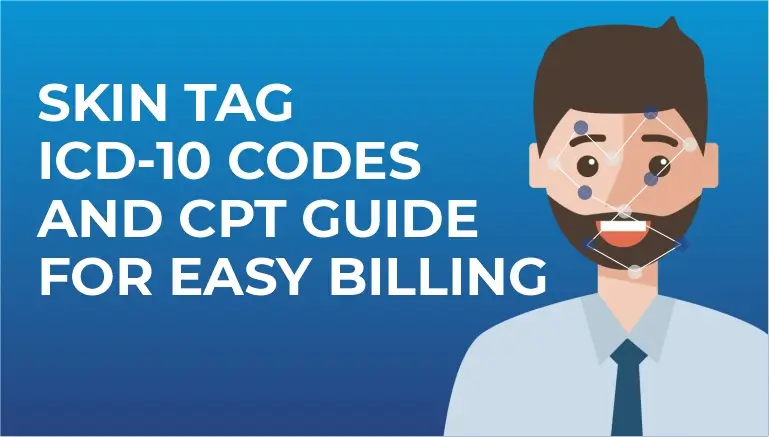Mental health providers confront one-of-a-kind challenges when exploring insurance billing, with claim denials being one of the most significant hurdles. Denials can disturb cash flow, increase regulatory burdens, and delay care for patients.
Understanding the reasons behind dissents and executing strategies to overcome them is basic for mental health practices to flourish. This blog investigates common causes of insurance refusals in mental well-being billing, practical steps to address them, and proactive measures to decrease future denials.
Why Insurance Denials Happen in Mental Health Billing?
Insurance denials happen when an insurer refuses to pay for a submitted claim, frequently due to errors, approach limitations, or insufficient documentation. In mental health billing, denials are especially prevalent due to the nuanced nature of administration and strict payer requirements. Underneath are the most common reasons for denials:
1. Need for Medical Necessity
Insurers frequently deny claims if they accept the treatment was not medically necessary. Mental health administrations, such as treatment or psychiatric evaluations, require clear documentation to justify the need for care. Without detailed notes connecting the patient’s conclusion, symptoms, and treatment arrangement, claims are flagged for denial.
2. Coding Errors
Incorrect or outdated billing codes can lead to quick refusals. Mental health billing depends on Current Procedural Terminology (CPT) codes and International Classification of Diseases (ICD-10) codes. Utilizing a mismatched CPT code, an unspecified ICD-10 code, or failing to overhaul codes every year can trigger rejections.
3. Authorization Issues
Many mental health services require earlier authorization, particularly for intensive medicines like inpatient care or prolonged treatment sessions. Submitting claims without getting approval or failing to renew authorizations can result in denials.
4. Timely Filing Limits
Insurers force strict due dates for claiming entries, frequently ranging from 30 to 90 days. Missing these deadlines, even by a day, can lead to automatic denials, regardless of the claim’s validity.
Read More: Advantages of Outsourcing Mental Health Billing Services
5. Understanding Qualification Issues
Denials may happen if the patient’s insurance coverage has lapsed, the benefit isn’t secured under their arrangement, or the supplier is out-of-network. Verifying eligibility before rendering administrations is basic to avoid these issues.
6. Duplicate or Incomplete Claims
Submitting copy claims or claims with lost information—such as supplier credentials, patient demographics, or benefit dates—can lead to rejections. Safeguards may, moreover, deny claims if the documentation is incomplete or illegible.
Strategies to Overcome Insurance Denials
When a claim is denied, mental health suppliers must act quickly to request the choice or correct mistakes. Below are significant steps to address refusals effectively:
1. Review of the Denial Notice.
Every denial comes with an Explanation of Benefits (EOB) or denial code that traces the reason for rejection. Carefully survey the take notes to recognize the specific issue, whether it’s a coding error, need of authorization, or missing documentation. Understanding the root cause is the first step to settling the denial.
2. Correct and Resubmit Claims
For denials due to coding mistakes or incomplete data, adjust the claim and resubmit it promptly. Guarantee that CPT and ICD-10 codes adjust with the benefit given and that all required areas are complete. Double-check patient demographics and supplier data to avoid further rejections.
3. Offer Denials with Strong Documentation
If a denial is due to need of medical need or other debate, record an offer with the insurer. Offers require strong documentation, including:
- Progress Notes: Detailed notes that outline the patient’s indications, diagnosis, treatment arrangement, and progress.
- Letter of Medical Need: A letter from the provider explaining why the benefit was basic for the patient’s mental health.
- Supporting Evidence: Any extra records, such as diagnostic assessments or referrals, that approve the claim.
Submit the appeal within the insurer’s due date, typically 60–180 days, and follow up to guarantee it’s being processed.
4. Get Retroactive Authorizations
For denials due to missing earlier authorizations, contact the insurer to ask for retroactive approval. Give documentation proving the medical need of benefit and clarify any extenuating circumstances, such as crisis care. Whereas not continuously effective, this approach can recover a few claims.
5. Engage with Payer Representatives
Building relationships with payer agents can streamline the appeals process. Contact the insurer’s supplier relations group to discuss denials, clarify prerequisites, and look for directions on resubmissions. These agents can offer insights into payer-specific policies.
6. Prepare Staff on Billing Best Practices
Invest in regular training for billing staff to decrease mistakes. Training should cover:
- Accurate coding for mental health services.
- Payer-specific authorization and documentation requirements.
- Timely filing deadlines and claim accommodation processes.
Well-trained staff are less likely to make mistakes that lead to denials.
Read More: Top 5 Common Medical Billing Mistakes and How to Avoid Them
Proactive Measures to Avoid Future Denials
While tending to denials is basic, anticipating them is even more viable. Implementing proactive methodologies can essentially decrease denial rates and improve income cycle management.
1. Confirm Insurance Eligibility in Advance
Before giving services, confirm the patient’s insurance scope, including:
- Active status of the policy.
- Covered services and exclusions.
- In-network vs. out-of-network status.
- Copays, deductibles, and authorization requirements.
Use electronic eligibility confirmation devices to streamline this process and catch issues early.
2. Maintain Exhaustive Documentation
Robust documentation is the spine of successful mental health billing. Guarantee that advance notes include:
- A clear link between the patient’s diagnosis and treatment.
- Specific details around the session, such as terms, modality (e.g., individual or group therapy), and mediations used.
- Measurable goals and results to demonstrate progress.
Standardize documentation layouts to guarantee consistency across providers.
3. Remain Updated on Coding Changes
Mental health charging codes advance annually. Subscribe to upgrades from the American Medical Association (AMA) for CPT codes and the World Health Organization (WHO) for ICD-10 codes. Utilize coding software or enlist certified coders to guarantee accuracy.
4. Execute a Denial Management System
Track refusals use a refusal administration system to recognize designs and address recurring issues. For example, if denials are regularly tied to a particular CPT code, examine whether staff require training or if the code is being misused. Regular reviews can reveal systemic issues before they escalate.
5. Outsource Billing to Experts
For practices struggling with denials, outsourcing charging to a proficient medical billing company can be a game-changer. These firms specialize in mental health billing, remain current on payer approaches, and have dedicated groups to handle offers. Whereas outsourcing includes a cost, it regularly pays off through improved claim approval rates and decreased regulatory burden.
Read More: Mental Health Billing Service With Revenue Cycle Management
6. Educate Patients on Their Coverage
Patients may not completely get their protection plans, leading to surprises when claims are denied. Teach patients approximately their coverage, counting out-of-network costs and authorization prerequisites. Clear communication can anticipate misunderstandings and guarantee patients are prepared for potential out-of-pocket expenses.
The Significance of Persistence
Overcoming insurance denials in mental health charging requires persistence, attention to detail, and a proactive mindset. Denials are not the end of the road; they’re an opportunity to refine forms, strengthen documentation, and advocate for patients. By tending to denials efficiently and implementing preventive measures, mental health suppliers can improve their monetary well-being and center on what matters most: delivering quality care.
Conclusion
Insurance denials are a pervasive challenge in mental health billing, but they’re not insurmountable. By understanding the reasons behind refusals, taking quick action to offer or correct claims, and receiving proactive techniques, providers can minimize disruptions and maximize reimbursements. Whether through staff preparation, robust documentation, or outsourcing, contributing to compelling billing practices is basic for the long-term success of any mental health practice. Stay watchful, remain educated, and keep fighting for the reimbursements your practice deserves.























